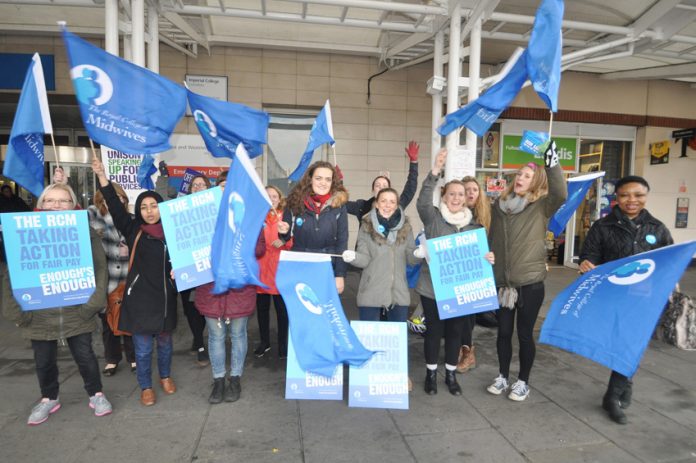HOSPITALS have been told by the Tory government’s regulator to only fill job vacancies that are ‘essential’, raising fears amongst midwives, doctors and nurses that they will be forced to operate with unsafe staffing levels, putting patients’ lives at risk.
Monitor, the Tory government’s ‘regulator for health services in England’ has written to the 46 foundation trusts with the biggest deficits. Demanding deeper cuts, Monitor’s chief executive David Bennett wrote: ‘As you know, the NHS is facing an almost unprecedented financial challenge this year. Current plans are quite simply unaffordable. As I have said before, if we are to do the best we can for patients we must leave no stone unturned in our collective efforts to make the money we have go as far as possible’.
NHS trusts must find even greater savings he added and fill vacancies ‘only where essential’. The letter has provoked an angry response from midwives, nurses and doctors’ unions. ‘The suggestion that individual trusts can “interrupt” safe staffing guidelines in a cost saving exercise is nonsensical,’ said the Royal College of Midwives (RCM).
The Royal College of Nurses (RCN) said: ‘There can be no compromise on safe staffing levels, nor should money in any way determine how many staff are needed to provide safe care.’ Dr Mark Porter, BMA council chair, said that Monitor’s further demands proved that seven-day working is unaffordable without extra funding and staff.
Louise Silverton, Director of Midwifery at the Royal College of Midwives, said: ‘The RCM believes all staff working within the NHS are “essential” and trusts need to proceed with extreme caution when defining who is “essential”. Guidelines for maternity have been developed using the evidence of what it takes to provide a safe, high quality service.
‘What does “adopting proportionately and appropriately” mean? The whole point of this guidance is to end ambiguity by helping trusts understand exactly what they need. David Bennett’s letter also suggests “diverting patients elsewhere” when the reality is that for maternity services it is often the case that neighbouring units don’t have the capacity to take on referrals from other trusts.’
Janet Davies, Chief Executive & General Secretary of the RCN said: ‘Staffing levels are either safe or they are not, and this must be decided based on patient need, using safe staffing guidance. If staffing levels are decided by accountants rather than clinical staff, patient care will suffer.’
Dr Mark Porter also said: ‘If trusts are to face an even greater squeeze on funding and staff then the only way to increase consultant presence across seven days is to reduce the number of senior doctors providing elective care during the week. If this is what the government aims to do as part of making the NHS a “truly seven-day service” then it should be honest with patients and doctors and say so.
‘ . . . We already know that two-thirds of the public don’t think the NHS can afford seven-day services. Tuesday’s news will do nothing to alleviate their or doctors’ concerns.’
